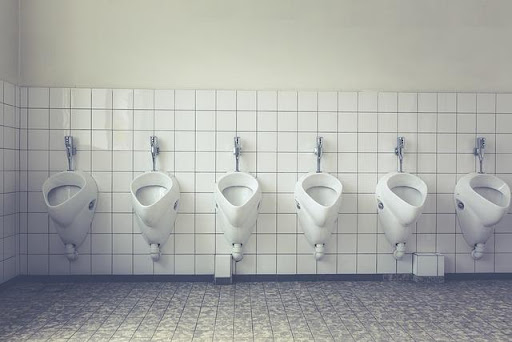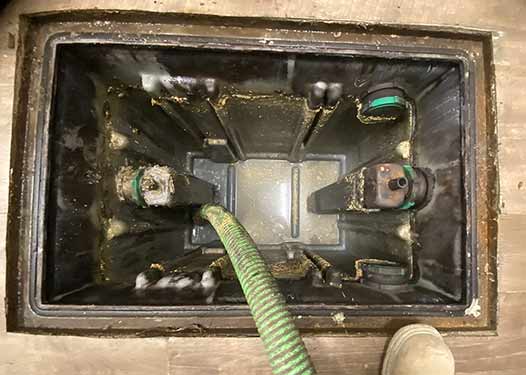
Running a restaurant in Chicago comes with its own set of challenges, and one of the critical aspects that often gets overlooked is the plumbing system. A well-functioning plumbing system is essential for the smooth operation of any restaurant, as it directly impacts the hygiene of the establishment and the overall customer experience. Below we will explore the key challenges that restaurant owners face regarding plumbing in Chicago and discuss possible solutions to overcome them.
The Importance of Proper Plumbing in Restaurants
Before delving into the challenges and solutions, it is crucial to highlight why proper plumbing in restaurants is of utmost importance.
First and foremost, restaurants deal with food and beverages that require extensive use of water, such as cooking, cleaning, and washing dishes. A reliable plumbing system ensures that these tasks can be carried out efficiently, without interrupting the workflow of the kitchen staff.
Moreover, proper plumbing plays a vital role in maintaining a clean and hygienic environment. Restaurants are subject to strict health and safety regulations, and a faulty plumbing system can lead to contamination, which can have severe consequences, including the closure of the establishment.
Lastly, a well-maintained plumbing system also enhances the overall customer experience. Nobody wants to visit a restaurant with leaking faucets, clogged toilets, or foul odors. By ensuring that the plumbing is in top condition, restaurants can create a pleasant environment for their patrons.
Challenges Faced with Restaurant Plumbing in Chicago
Chicago is known for its extreme weather conditions, and this poses unique challenges for restaurant plumbing systems. Here are some key challenges faced by restaurant owners:
Frozen Pipes
During the harsh winter months in Chicago, the temperature often drops below freezing point. This can result in frozen pipes, which can cause major disruptions in the restaurant’s operations. Frozen pipes not only lead to water supply issues but can also cause them to burst, leading to potential water damage.
Solution:
To prevent frozen pipes, restaurant owners need to take proactive measures. Insulating pipes, especially those located in areas exposed to low temperatures, is crucial. Installing heat tracing cables on susceptible pipes can also help maintain the temperature and prevent freezing.
Drainage Problems
Restaurants generate a significant amount of wastewater due to their daily operations. This wastewater primarily includes food particles, grease, and oil, which can lead to clogged drains and sewer lines over time. Slow-draining sinks, foul odors, and recurrent plumbing issues are common symptoms of drainage problems.
Solution:
To tackle drainage problems, restaurant owners should adopt regular maintenance practices. Grease traps should be installed to prevent grease and oil from entering the plumbing system. Proper cleaning of restaurant grease traps, along with periodic drain cleaning, can help prevent clogs and keep the plumbing system functioning smoothly.
Backflow Prevention
Backflow is a significant concern in any establishment that deals with water supply, including restaurants. Backflow occurs when there is an unwanted reverse flow of contaminated water into the clean water supply. This can happen due to pressure changes, pipe bursts, or cross-connections with non-potable water sources.
Solution:
An installation of a backflow prevention device is crucial in restaurants to safeguard the clean water supply. These devices, such as backflow preventer valves, ensure that water only flows in one direction, preventing any backflow contamination. Regular testing and maintenance of these devices are essential to ensure their effectiveness.
Water Pressure Issues
Inconsistent water pressure can be a frustrating issue for both restaurant staff and customers. Low water pressure can hinder various kitchen tasks, such as rinsing dishes and filling pots, leading to delays and decreased efficiency.
Solution:
Restaurant owners should consider installing a water pressure booster system to regulate and maintain a consistent water pressure throughout the establishment. Additionally, regular inspection of plumbing fixtures, such as faucets and valves, can help identify any blockages or leaks that may be affecting the water pressure.

Proper cleaning and maintenance of grease traps, along with periodic drain cleaning, can help prevent clogs and keep the plumbing system functioning smoothly.
Professional Plumbing Services in Chicago
Dealing with restaurant plumbing challenges can be overwhelming for owners, especially considering the complexities involved. It is crucial to seek professional plumbing services to ensure that these challenges are addressed effectively. There are several reputable plumbing companies in Chicago that specialize in restaurant plumbing. These professionals have the experience and expertise to handle the unique plumbing needs of restaurants, minimizing downtime and potential risks.
In Summary
Restaurant plumbing in Chicago presents its own set of challenges, ranging from frozen pipes to drainage problems and backflow prevention. However, by understanding these challenges and implementing the appropriate solutions, restaurant owners can maintain a well-functioning plumbing system that ensures hygiene, operational efficiency, and customer satisfaction. Seeking the assistance of commercial plumbing services in Chicago is highly recommended to address these challenges effectively and keep the restaurant’s plumbing system in optimal condition.
By prioritizing the plumbing system and taking proactive measures, restaurant owners can create a safe and pleasant environment for both their staff and patrons, ultimately contributing to the success of their establishment.
—